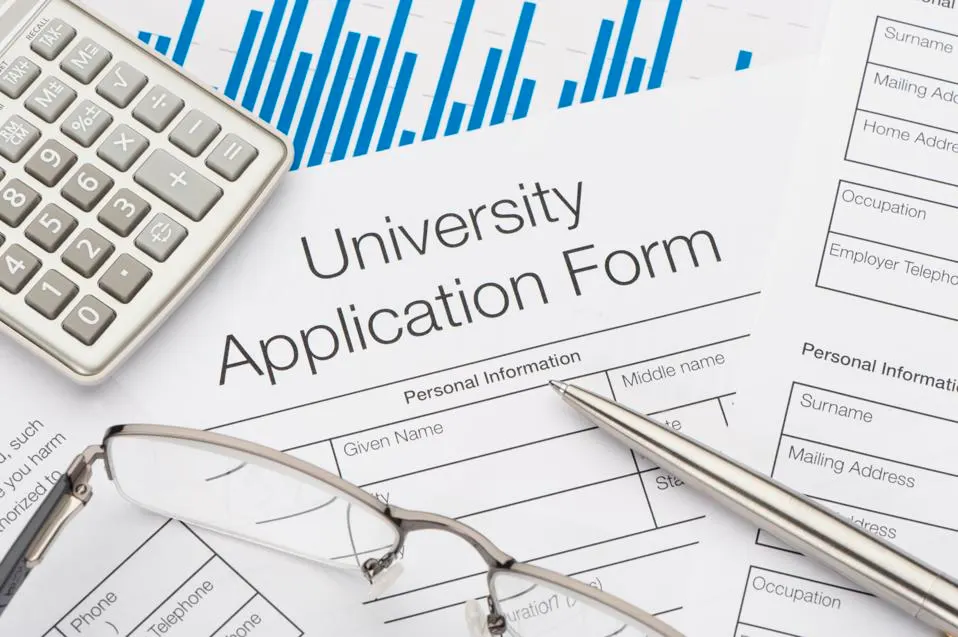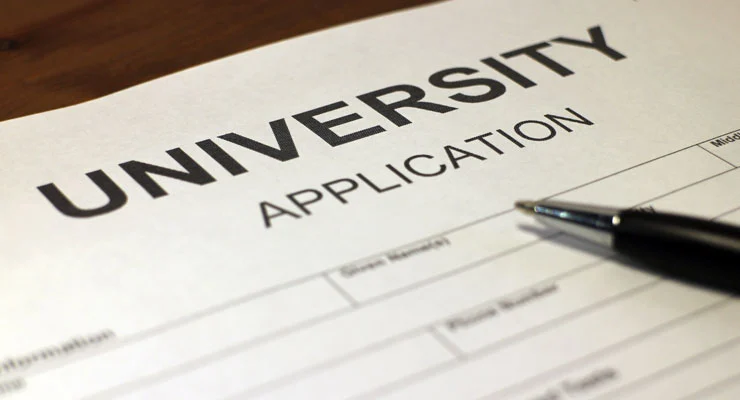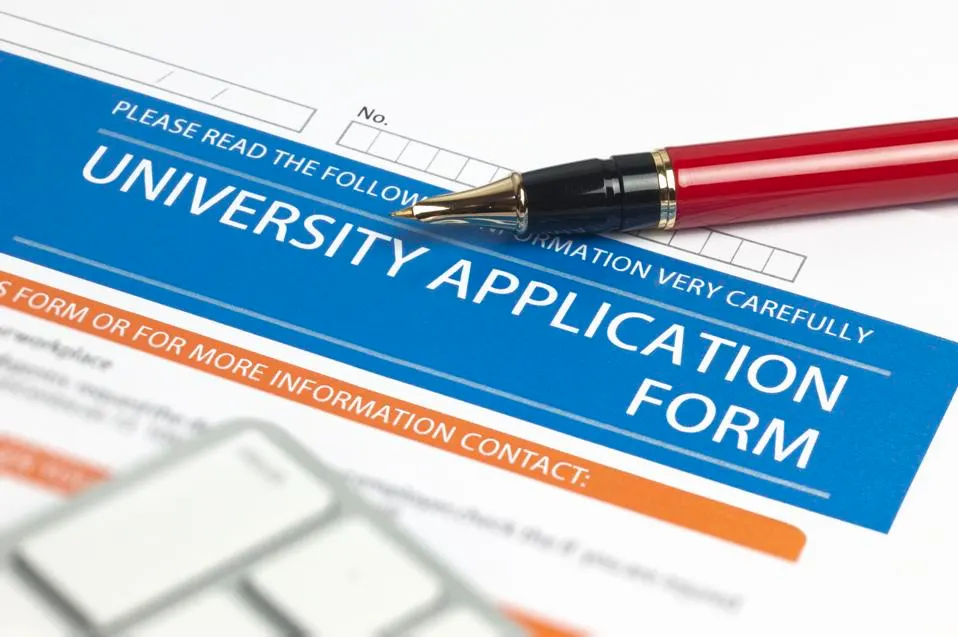Yes, Whether you can apply to the same university again depends on the specific rules of each university. Some universities allow it, while others could have restrictions. It also varies for different programs within the same university, especially for competitive ones. Check the university’s policies on reapplications, which you can usually find on their website or by contacting the admissions office.
Moreover, keep in mind the application cycle – some allow multiple applications in one cycle, while others can require waiting for the next round. If you’re thinking of reapplying, make sure to show improvements in your academics or application materials.
Don’t forget to explore resources like your high school counselor or online forums for guidance and support.
What Is The Comprehending Of The Policies of the University?

University policies are crucial for a smooth and successful academic experience. Here’s a breakdown to help you understand them better
Identify Restrictions or Limitations
It’s important to determine if the university has any restrictions on the number of times an applicant can reapply. Some institutions may have limitations in place, such as a maximum number of attempts or waiting periods between applications. Understanding these restrictions will help you plan your reapplication strategy accordingly.
Changes in Admission Criteria
As admission criteria and processes can evolve, it’s crucial to understand if there have been any alterations since your previous application. This includes checking for new requirements or expectations for applicants, such as additional standardized tests, updated prerequisite courses, or changes in GPA thresholds.
Being aware of any changes will allow you to tailor your application to meet the current criteria.
Policy on Previous Applications
Clarifying the university’s stance on considering previous applications during the new evaluation is essential. Some institutions may have policies in place regarding the reevaluation of previous applications, including whether or not prior rejections will impact the current application. Understanding this policy will help you gauge your chances and strategize accordingly.
Understand the Appeal Process (if applicable)
If your previous application was rejected and the university offers an appeal process, it’s important to understand the requirements and timeline for submitting an appeal.
Further, this may involve providing additional documentation or addressing specific concerns raised during the initial evaluation. Knowing the appeal process can provide you with an opportunity to potentially rectify any issues and strengthen your application.
Timeline for Reapplication
Determining the timeline for the reapplication process is crucial to ensure you meet all deadlines. Be aware of the deadlines for submitting documents, test scores, and the application itself.
Additionally, consider any time needed for potential appeals or additional preparations. Adhering to the timeline will help ensure your application is complete and submitted on time for consideration.
Assessing Reasons for Reapplication
Here’s a breakdown to help you assess the reasons for reapplying to a program, position, or anything you were previously rejected for:
Reflect on the Initial Rejection
Consider the reasons why your initial application was rejected. Identify any weaknesses or shortcomings in your previous application.
Academic Performance
Evaluate your academic performance since the last application. Determine if there have been improvements in grades, coursework, or standardized test scores.
Personal Statement or Essay
Analyze the content and quality of your personal statement or admission essay. Identify any areas where the essay could be strengthened or made more compelling.
Letters of Recommendation
Assess the effectiveness of your letters of recommendation. Consider if there were any weaknesses or if new letters from different recommenders would enhance your application.
Changes in Circumstances
Reflect on any significant changes in your personal or academic circumstances since the last application. Determine if these changes positively impact your eligibility and alignment with the university’s values.
Personal and Academic Growth
Highlight any personal and academic growth since the previous application. Showcase new achievements, skills, or experiences that demonstrate your continuous improvement.
Relevance to Chosen Program
Ensure that your academic and career goals align with the chosen program at the university. Verify if your interests and aspirations are still compatible with the offerings of the institution.
Seeking Professional Advice
Consult with academic advisors, mentors, or college counselors for guidance. Obtain feedback on your previous application to gain insights into areas for improvement.
Understanding the Admission Criteria
Familiarize yourself with the university’s admission criteria. Determine if there have been any changes in the criteria since your initial application.
Clear Intentions for Reapplication
Clearly define your motivations for reapplying to the same university. Ensure that your intentions are genuine and that you can articulate them effectively.
Demonstrating Perseverance
Show how you have overcome challenges or setbacks since the previous application. Emphasize your commitment to pursuing education at the specific university.
Improving the Application
There are ways to improve your application, depending on what kind of application it is (job application, college application, etc.) Here are some general tips that can be applied broadly.
Address Weaknesses
Identify weaknesses in your previous application, such as academic performance, extracurricular activities, or personal statements. Develop a plan to address and overcome these weaknesses.
Retake Standardized Tests
If applicable, consider retaking standardized tests to improve your scores. Prepare thoroughly for the exams to maximize your performance.
Enhance Academic Performance
Take additional coursework or pursue certifications to demonstrate academic improvement. Show a commitment to academic excellence since the previous application.
Professional Guidance
Seek advice from academic advisors or mentors to get insights into improving your application. Consider professional assistance for refining your statement or essay.
Revise Personal Statement or Essay
Rewrite your personal statement or admission essay. Focus on addressing any weaknesses from the previous application and highlighting your strengths, achievements, and personal growth.
Update Letters of Recommendation
Obtain updated letters of recommendation from different recommenders. Ensure that the new letters emphasize your strengths and suitability for the chosen program.
Showcase Achievements
Highlight any new achievements, experiences, or skills acquired since the last application. Illustrate how these achievements contribute to your overall qualifications.
Demonstrate Personal Growth
Emphasize personal growth and maturity since the previous application. Showcase how you have learned from experiences and evolved as an individual.
Align with University Values
Ensure that your application aligns with the values and mission of the university. Demonstrate a clear understanding of what makes the university a suitable fit for your academic and personal goals.
Extracurricular Involvement
Participate in meaningful extracurricular activities that showcase your interests and contributions. Demonstrate a well-rounded profile that goes beyond academic achievements.
Clarity in Intentions
Clearly articulate your motivations for reapplying to the same university. Explain how the institution aligns with your future aspirations and why it remains your top choice.
Proofread and Edit
Thoroughly proofread all application materials to ensure clarity and correctness. Present a polished and error-free application to make a positive impression.
Submission of Complete Materials
Ensure that all required documents are submitted accurately and on time. Follow the university’s guidelines for submitting application materials.
Communicating with the Admissions Office
Before reapplying to the same university, it is crucial to establish clear communication with the admissions office. Begin by inquiring about the institution’s policies on reapplication. Further, seeking specific information on any changes in criteria or procedures since your previous submission.
Further, politely request feedback on your prior application to gain insights into areas of improvement. This dialogue will not only demonstrate your continued interest in the university but also provide valuable guidance for refining your reapplication.
Additionally, if uncertainties arise during the process, promptly contact the admissions office for clarification. Open and proactive communication with the admissions team ensures that you are well-informed and better positioned for success in your reapplication efforts.
Preparing a New Application
When preparing a new application for the same university, it’s essential to approach the process with strategic intent. Begin by carefully reviewing the updated admission requirements and guidelines provided by the university.
Craft a new, compelling personal statement addressing previous weaknesses and showcasing academic and personal growth to enhance your application.
Obtain updated letters of recommendation, ensuring they align with your current achievements and aspirations. Showcase any additional coursework, certifications, or extracurricular activities undertaken since the initial application.
In addition, tailor your application materials to reflect a deeper understanding of the university’s values and how they resonate with your educational goals. Present a polished and error-free application, paying attention to detail in formatting and submission requirements.
Address past shortcomings and align strengths with university expectations to improve chances of making a positive impression during evaluation.
Applying for Multiple Courses at the Same University

When applying for multiple courses at the same university, each application must be for a distinct course. The same course cannot be applied twice in one application.
To utilize all five course choices available through platforms like UCAS, applicants must ensure that each selection represents a different academic program.
While the courses can be related, it’s crucial to recognize that a unique personal statement is typically required for each application. Crafting tailored personal statements for different programs is challenging due to the limited character count (4000 characters) and diverse requirements.
Further, applicants can apply for less than five courses, aiming for a balance between diversity and coherence, showcasing passion and suitability. If seeking guidance on writing a personal statement for multiple courses, resources from UCAS and Think Student offer valuable tips and advice.
FAQ’s
How many times can you apply to Harvard?
Applicants can reapply to Harvard, and the Harvard Kenneth C. Griffin Graduate School of Arts and Sciences allows a maximum of three applications from one individual over their lifetime.
Can a 2 GPA get into Harvard?
No, While the average GPA for Harvard is 4.2, successful applicants can have GPAs above or below this figure. It is not an automatic rejection if your GPA is below 4.0, and some suggest that the lowest GPA accepted to Harvard is around 3.0 (weighted).
Is it worth reapplying to Harvard?
Yes, Reapplying to Harvard after a previous rejection does not necessarily put you at a disadvantage. Each application is considered on its own merits, and the admissions process at highly selective universities like Harvard is competitive.
What is the lowest GPA Yale has accepted?
Yale does not set a minimum GPA, and they do not attempt to re-weight GPAs. Admission decisions are made based on a holistic review of each applicant’s profile.
Can a 2.5 GPA go to Harvard?
No, While it is possible to get into Harvard with a low GPA, it is improbable. For the Class of 2026, only 2.09% of admitted students had GPAs below 3.5. Some admitted students with lower GPAs often fulfill other institutional needs, such as excelling in sports or contributing to development cases.
Final Words
The possibility of applying to the same university twice hinges on the specific policies of the institution. While some universities readily allow reapplications, others can have limitations or certain conditions.
It is imperative for applicants to thoroughly review the university’s guidelines, accessible through their official website or by contacting the admissions office directly.
So, if reapplying, emphasizing significant improvements in academic performance or application materials is crucial. Crafting a stronger application that showcases growth and achievements since the previous attempt enhances the likelihood of success.
Students should proactively seek guidance, utilize reliable resources, and strategically tailor their reapplication to the university’s specific requirements.
